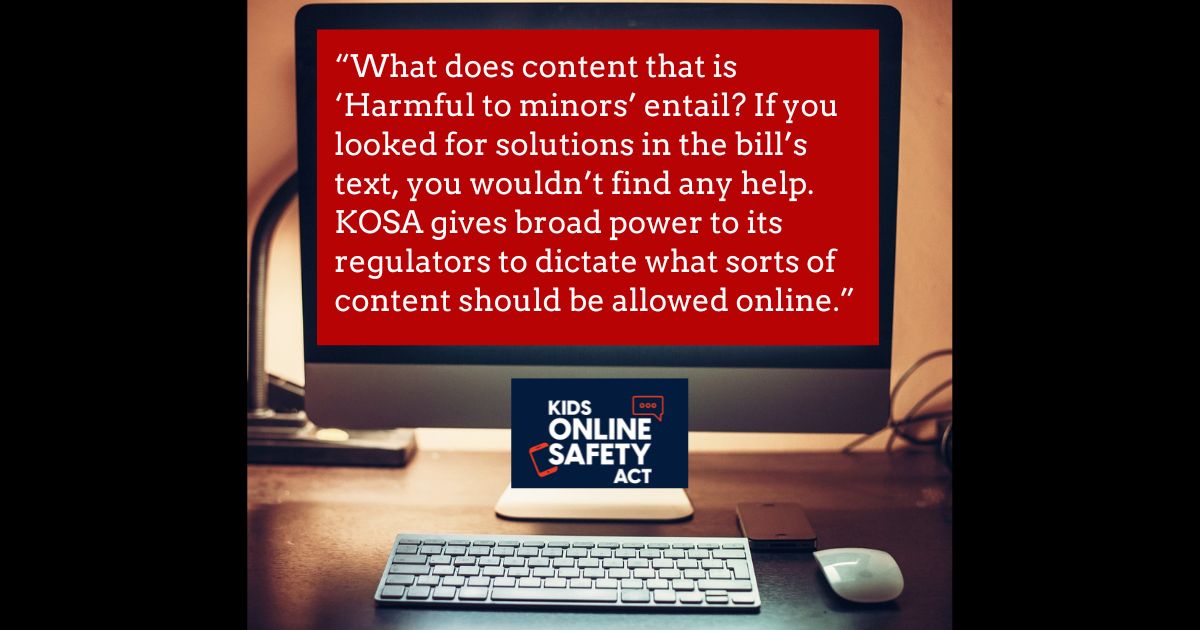Guest Op-Ed by Julio Fuentes , founder of Florida State Hispanic Chamber of Commerce
In an increasingly digital world, access to social platforms and the internet is no longer just a convenience. It’s a necessity. Business owners of companies of every size in our state’s diverse economy rely on digital marketing tools to reach the audiences they need to keep their doors open.
For small business owners, in particular, this ability to post and share content with their customers is often vital. Therefore, as our country continues to have conversations around new top-down federal guardrails for children, it is evident we must walk a fine line.
Yet, despite the need for balanced, pragmatic legislation that sets reasonable guidelines—a movement that I am certain we could all support—federal lawmakers have instead proposed the sweeping, unprecedented provisions found in the Kids Online Safety Act (KOSA).
While Congress intended for the bill to solve concerns over the content available to kids when it passed, its loophole-ridden construction makes it a concerning legal foundation for censorship. At the heart of this concern is KOSA’s new legal mandate for platforms to moderate any content its enforcers deem “harmful to minors.”
So, what does content that is “harmful to minors” entail? Unfortunately, if you looked for solutions in the bill’s text, you wouldn’t find any help. As a result of this lack of regulatory clarity, KOSA gives broad power to its regulators to dictate what sorts of content should be allowed online. Through these new powers, the Federal Trade Commission can levy federal lawsuits against social platforms that refuse to take down the content they oppose.
The FTC, however, is not the only regulator that will gain new powers to influence content. State attorneys general, empowered to take legal action under state laws in conjunction with KOSA, will have newfound control over what can be found online, not just for kids but for all users. Since platforms will be forced to be proactive in moderating content to avoid the overzealous pursuits of some attorneys general, we could see some types of content wiped out completely.
As social platforms attempt to navigate this regulatory gauntlet, we could see a wave of online censorship that disproportionately impacts Florida’s vulnerable communities.
For businesses, KOSA’s restrictive nature and enforcement at the discretion of bureaucrats and attorneys general could reshape the invaluable digital marketing tools they have relied on for years.
Put simply, the bill might act as if it could operate in a vacuum that only impacts what kids can see, but a law as vague and broad as this one would undoubtedly have side effects for all other users.
Florida celebrates diversity and champions individual freedoms. KOSA, as it is currently written, jeopardizes both. As a voice for businesses and individuals who stand to be impacted by KOSA’s shortcomings, we hope Florida’s lawmakers are the first to reject its troublesome measures.
Julio Fuentes founded the Florida State Hispanic Chamber of Commerce, representing over 80,000 minority-owned businesses.














